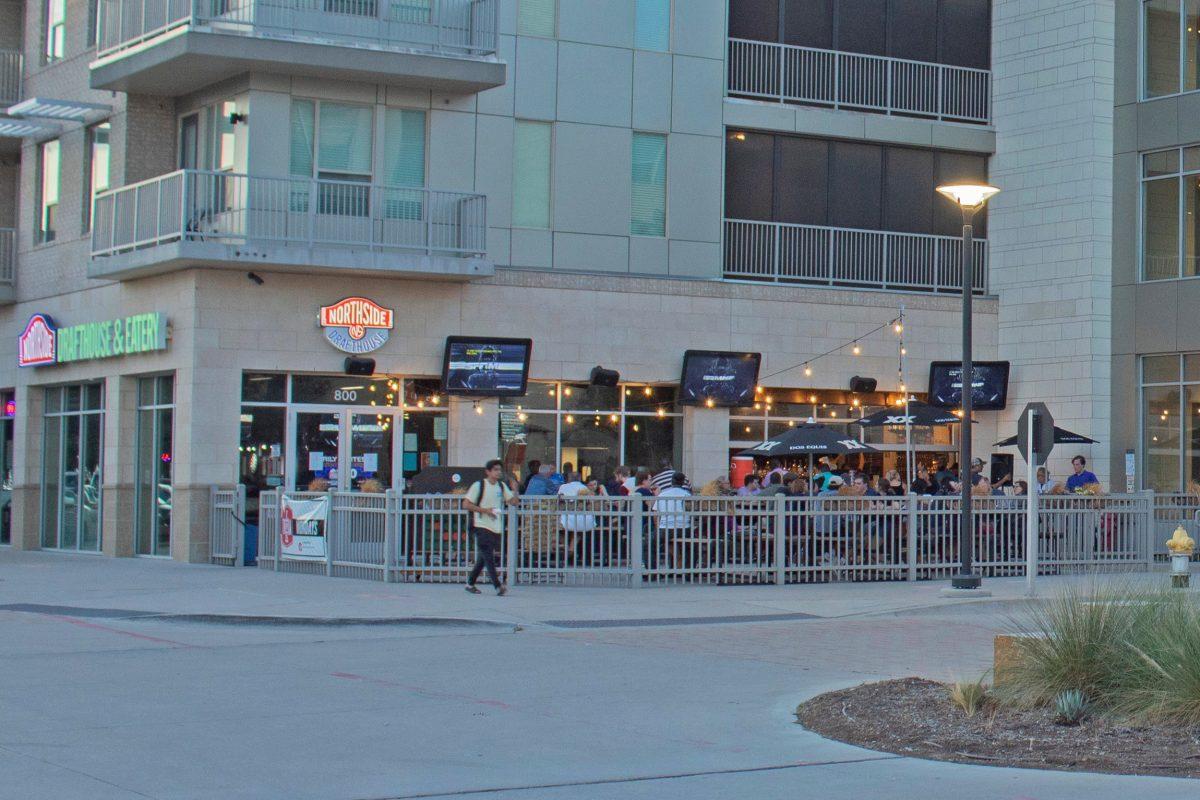
Northside Drafthouse has been delivering and fulfilling takeout orders to stay in business during the pandemic. Photo by Roshan Khichi | Mercury Staff
How owners, managers are keeping their stores afloat
With a statewide
order mandating social distancing in Texas, local businesses are losing
valuable foot traffic and income. Even with federal assistance in the form of
payroll protection and loans, businesses are having to make tough decisions to
make it through quarantine.
Businesses, from restaurants to game stores, have to decide
how to make it through the next two months or more without consistent revenue. Assistant
general manager for Northside Drafthouse Andrew Carodine said they’ve been
delivering and fulfilling takeout orders to stay afloat.
“(We) also try to provide some
cocktail kits abiding by whatever laws the (TABC) has given us in order to sell
alcohol as well,” Carodine said.
According to ***The Texas Tribune,*** over 760,000 Texans
have filed unemployment claims in the past month, more than all Texas
unemployment claims in 2019. Carodine said that Drafthouse management have
taken steps to pay their employees or let them claim unemployment. One option
available to businesses in the US is payroll protection as part of the recently
passed CARES Act, but both the payroll protection and unemployment are
difficult to obtain at this time.
“There’s kind of a very long waiting list because everyone’s
trying to grab it,” Carodine said. “For 20 of our employees, they’re trying to
acquire unemployment, but so is the rest of America.”
After running the numbers, Carodine said, they’ve been able
to keep everything for now, but it’s tougher on them as they aren’t a branch
with corporate headquarters to provide financial support. However, as part of
the service industry, Carodine said, they’re taking it like most other
restaurants and other hospitality businesses are.
“Everyone else in the service industry and the hospitality (industry) across
the board, you know, everyone’s taking a huge dip,” Carodine said. “We are
taking the necessary steps we can in order to make sure everyone is happy, fed
and that we keep the lights on here.”
For Andrew Lucia, owner of The Local Game Store in
Richardson, it’s not as simple as transitioning to delivering product. As a
card game store, the LGS’s main source of revenue were the events that Lucia
hosted, which subsequently led to impulse buys and purchases of other products,
he said.
“The way that this business operates is community driven. We
host events, and we host tournaments so that we guarantee our foot traffic,”
Lucia said. “You can’t buy cards if you don’t have players. You don’t want to
buy cards if you don’t have communities to sell those cards to.”
While Lucia said that most businesses like LGS aren’t likely
to survive the lack of revenue, he has plans to keep LGS running. Lucia is
moving sales online, as well as exploring different ways to let the community
support them.
“Some of those things will be websites that allow you to
create t-shirts with logos where they give you a percentage of your shirt sales
… we’re also going to explore making some deck boxes and unique items with our
3D printer that we have,” he said. “We’ve resisted a bit, but we’re going to
open up gift cards so that way people can invest money in the shop that they
know they’ll be able to use later on once we open back up. That’ll give us the
ability to continue to pay our employees, which we have been doing.”
Besides the payroll protection in the CARES Act, there are
two loans and grants available to obtain, but they’re behind a long waiting
list of everyone else in the state trying to obtain assistance. The first loan
is a disaster relief loan at a 3.75% interest rate that can give businesses
$40,000-50,000, Lucia said. There’s also a grant locked at $10,000 dependent on
the expected business losses. Both forms of assistance are means-tested,
meaning that specific types of businesses are considered before others, with a
game hobby store likely behind other businesses, Lucia said.
While other companies such as Walmart have resorted to
cutting staff hours, Lucia made it clear that his employees are a priority for
him.
“We’re just not getting any money in. The money that we do
have, we’d normally spend on rent, and on our loan payment … We’re going to put
those things on hiatus so we can make sure our employees get paid. That’s where
I’d rather send the money,” he said. “I’d rather send the money to my employees
and find ways for them to be useful to me, rather than to give that money to
people that don’t care about us whatsoever.”
Lucia said that the situation also provides an opportunity
for people to realize the privilege of having various businesses, especially a
game store, around.
“If this doesn’t show everyone what a privilege it is (for businesses) to be there, and that physical space to be there with it … I just don’t know what will,” he said.
 Andrew Lucia, owner of The Local Game Store in Richardson, said he’s prioritizing paying his employees during the COVID-19 outbreak. Photo Courtesy of Andrew Lucia
Andrew Lucia, owner of The Local Game Store in Richardson, said he’s prioritizing paying his employees during the COVID-19 outbreak. Photo Courtesy of Andrew Lucia